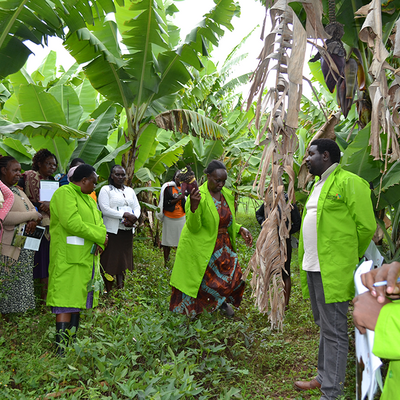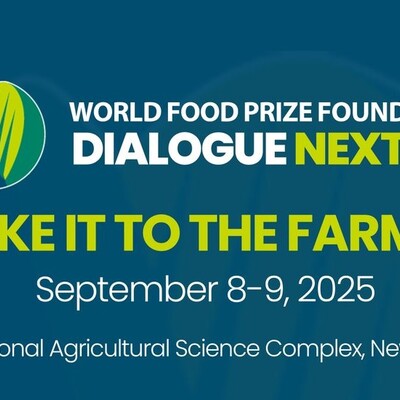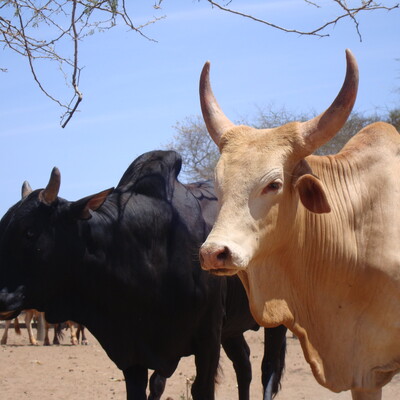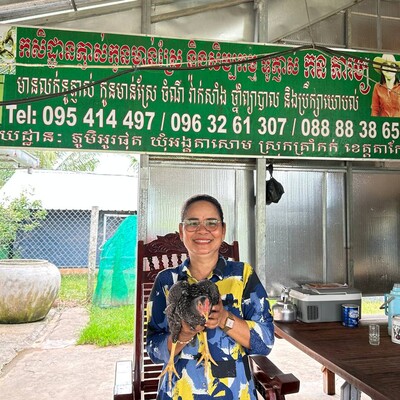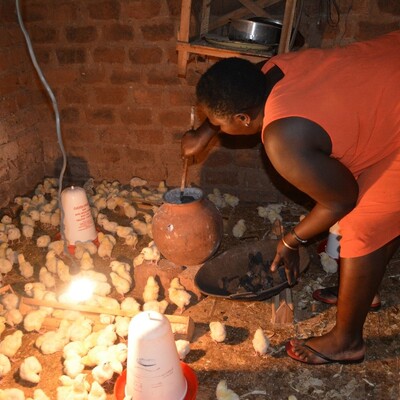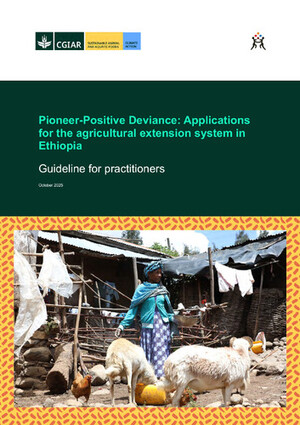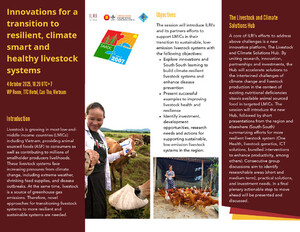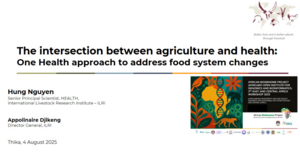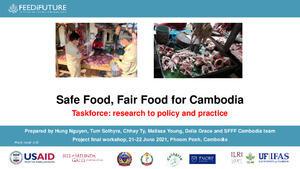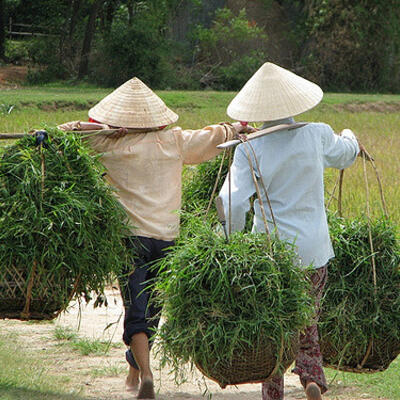
World Food Day in Ethiopia: Achieving food and nutritional security—and better lives—through livestock

Siboniso (‘Boni’) Moyo (front, left), the ILRI director general’s representative in Ethiopia, pledges with many others to work together toward Zero Hunger in Ethiopia in a celebration on World Food Day, 16 Oct 2018, held in Mojo, central Ethiopia (photo credit: ILRI/Apollo Habtamu).
Siboniso Moyo, the representative in Ethiopia of Jimmy Smith, the director general of the International Livestock Research Institute (ILRI), made the following remarks at an event in Mojo, Ethiopia, to celebrate World Food Day yesterday (16 Oct 2018).
‘As we celebrate this year’s World Food Day, let us remember the many ways that livestock can help the world meet the Sustainable Development Goal 2 of Zero Hunger by 2030.
‘Animal-source foods—milk, meat and eggs—are dense in essential micronutrients and are among nature’s ‘first foods’.
‘Providing poor people with greater access to these foods is a powerful way to improve human nutrition and wellbeing, both through the foods animals provide as well as through the income generated from animals, which many households use to purchase nutritious foods.
‘Livestock are critical to meeting the Goal of Zero Hunger by 2030. The International Livestock Research Institute is working with partners to bring about change in livestock-related practices, policies and investments in developing countries. We do this by generating scientific knowledge, exerting influence and developing capacity for more equitable and sustainable livestock development.
‘Ethiopia’s vast livestock resources, among the greatest in all of Africa, and the Ethiopian Government’s outstanding roadmaps and investments in agricultural and livestock development, offer the country unprecedented opportunities to end hunger and undernutrition by 2030.
‘It gives me great pleasure that today the International Livestock Research Institute joins Ethiopia and the rest of the world in celebrating this day and reflecting on how together we can contribute to a world free of hunger by 2030.
‘A #Zero Hunger world by 2030 is possible. I thank you!’
<><><>
More than two billion people worldwide are not getting all the nutrients they need. Micronutrient deficiency can lead to illness,
physical stunting and impaired cognitive development. Animal-source foods—milk, meat and eggs—dense in essential micronutrients are among nature’s ‘first foods’. Providing poor people with greater access to these foods is a powerful way to improve human nutrition and wellbeing, both through the foods animals provide as well as through the income generated from animals, which poor households use to purchase nutritious foods.
In 2015, the international community adopted the United Nations’ Sustainable Development Goals (SDGs), one of which is to have ‘zero hunger’ by 2030. Livestock are critical to meeting this goal (SDG 2) to end hunger, achieve food security, improve nutrition and promote sustainable agriculture. But with more than eight billion people to feed by 2030, and the need to do so with diminishing natural resources and a changing climate, sustainably increasing livestock productivity will require highly innovative and inclusive approaches.
As we celebrate this year’s World Food Day, let us remember the many ways that livestock can help the world meet SDG 2.
The International Livestock Research Institute (ILRI) is working with partners to bring about change in livestock-related practices, policies and investments in developing countries by generating scientific knowledge, exerting influence and developing capacity for more equitable, broad-based and sustainable livestock development.
ILRI envisions a world where all people have access to enough food and nutrition to reach their maximum potential.
ILRI works to make this a reality through research for efficient, safe and sustainable use of livestock, thereby ensuring better lives through livestock.
Globally, about 1 billion people benefit from livestock in different ways. Almost half of these depend on livestock for their livelihoods.

Animal-source foods (meat, milk and eggs) provide 40% of the world’s protein supply.
Over the last 30 years, consumption of meat, milk and eggs in low- and middle-income countries has more than tripled.
Including animal-source foods in the diets of most infants in poor households in their first 1,000 days of life (up to two years of age) is critical for meeting their basic nutritional needs.
Eggs, meat and dairy products are 3 of the 7 food groups deemed by the World Health Organization to be essential in assessing the dietary diversity of infants.

What ILRI and its livestock partners are doing to help achieve zero hunger
ILRI and its partners are working together to build a world where the communities of developing and emerging economies are empowered with the most reliable livestock- related knowledge, where sustainable livestock productivity is fully and equitably supported, where women and men both are livestock decision-makers, and where no one goes hungry and thereby fails to achieve their full potential.

ILRI works with partners to undertake research that leads to development outcomes that:
- Combat food insecurity and malnutrition through research to raise livestock productivity levels.
- Enhance food safety through the implementation of early-warning and risk-reduction systems.
- Ensure women have equal access to, control over and ownership of economic, land and other resources.
- Strengthen scientific and technological capacity to make livestock systems more sustainable.
- Ensure livestock development is compatible with adaption to, and mitigation of, climate change.
- Conserve the genetic diversity of farm animals and promote access to, and fair and equitable sharing of, benefits arising from such resources.
- Strengthen partnerships that mobilize and share knowledge, expertise and technology in sustainable livestock development.

Greater investments in sustainable livestock research for development can sustainably nourish the world’s rapidly growing population.
Working together and using livestock as powerful instruments of poverty reduction, we can build a world free of hunger.






